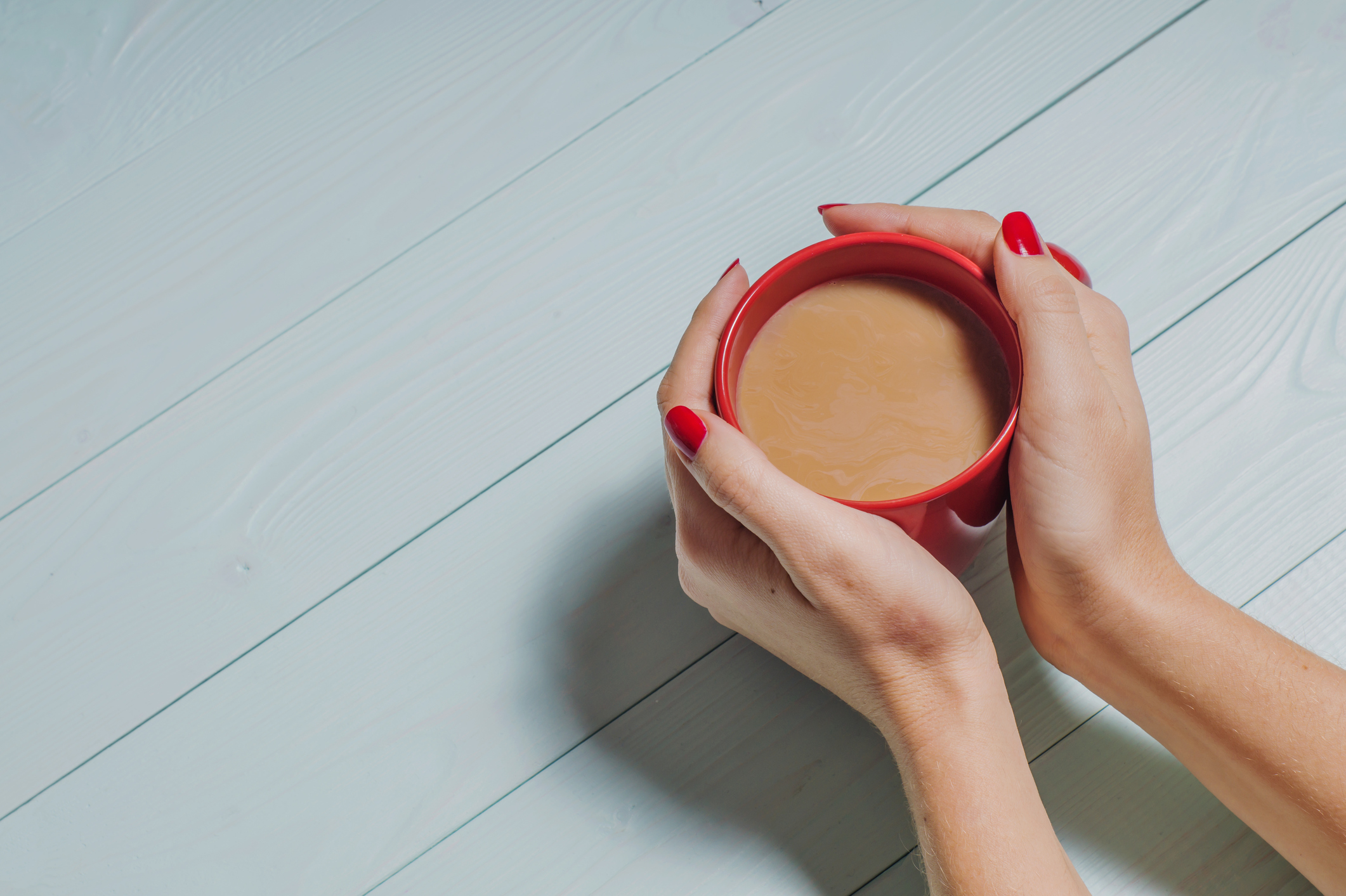What Americans can learn from the soothing British ritual of tea time
Nothing solidifies friendships, soothes heartache, and punctuates the passing days like a nice cuppa


A free daily email with the biggest news stories of the day – and the best features from TheWeek.com
You are now subscribed
Your newsletter sign-up was successful
When I started working in London four years ago, I repeatedly made a grave mistake: Whenever a colleague would offer me a cup of tea, I'd politely decline. To me, a mug of hot tea with milk tasted okay, but it was more the kind of thing you use to accompany something actually delicious, like cake. Also, as an American, I just assumed the offer was made out of politeness, not sincerity.
But this awkward exchange kept happening. It happened at work upwards of four times a day. The offers from my English colleagues began to drive me a little bit crazy, and I could that tell my repeated refusal to partake was annoying them, as well. But what could I do? I just didn't feel like a cup of tea. Fair enough, right?
Wrong. I might as well have said "I do not want to be part of your society" or "Your tea is gross and so are you." That's because in Britain, I soon learned, rejecting a cup of tea is like rejecting a gesture of friendship.
The Week
Escape your echo chamber. Get the facts behind the news, plus analysis from multiple perspectives.

Sign up for The Week's Free Newsletters
From our morning news briefing to a weekly Good News Newsletter, get the best of The Week delivered directly to your inbox.
From our morning news briefing to a weekly Good News Newsletter, get the best of The Week delivered directly to your inbox.
I'd always considered tea a relatively simple beverage. The British, of course, could not disagree more. An individual's particular tea preference is a lifelong commitment. Sharp lines are drawn. "How do you take your tea?" is perhaps the most loaded question in the British language. Milk or no milk? Sugar or no sugar? How long to steep? And unless you're ready for all out war, don't even think about asking whether the milk should be added before or after the water because you'll be dragged into a bitter dispute drawn along age-old lines of class and region, and as an American, your opinion won't count anyway.
Making a cup of tea for someone can be a way of saying, "I care about you. Have this hot bland liquid that I made for you just the way you like it." If you've had an argument with a roommate, offer to make them a cup of tea — if they accept, everything is okay now. This is also a great way to apologize without directly addressing the issue, which is the most British thing you could be doing anyway.
The true importance of the tea ritual didn't fully hit home for me until one fateful visit to my husband's parents in the north of England.
My British in-laws are the most polite, kind, hospitable people in the entire world. They bend over backwards to make me feel welcome. I never heard them say a word against me.
A free daily email with the biggest news stories of the day – and the best features from TheWeek.com
That was, until three years ago, on Christmas Day, when I first made them tea.
Let me first say that it is not an exaggeration to suggest that my father-in-law could not survive without tea. He drinks five cups a day and I have never seen him drink plain water. On most days, tea is his only source of hydration, which distresses me so much that whenever I visit, I leave out extra glasses of water within his reach, hoping to bait him into taking a sip.
Okay, back to Christmas. After being offered tea several times, I saw that it was time for the final cup of the day, which they have every evening after dinner. Being the dutiful daughter-in-law that I am, I took it upon myself to prepare this round. I boiled the kettle, stewed the tea bags, added the milk, and triumphantly placed two steaming cups in front of my in-laws.
They both glanced at their mugs and hesitated.
"Bit milky, huh?" my mother-in-law pronounced.
Her words went straight through my heart like a dagger. "Bit milky" is the American translation for "This is the worst thing I've ever tasted." I was mortified. Polite as she is, though, my mother-in-law sipped the tea anyway.
I didn't make tea again for a year, which basically labeled me a social pariah, because drinking tea is part of British society at every level. Everyone from the burly men on building sites to the queen herself in Buckingham Palace drinks tea. Upper-class, middle-class, and working-class people are united in their love of this national beverage. It's a way of life and a sacred tradition, and one that carries over into the workplace, as I so discovered.
No meeting in Britain's green and pleasant land shall begin without someone "popping the kettle on." Don't even think about attempting to work on something hellish, like any kind of spreadsheet, without making a brew first to help you through. A tough client call, a tedious data entry job, or a long presentation? Tea first, always.
Then, at regular intervals throughout the day, "the tea run" occurs. The tea run transpires when one person, bored with working, stands up and says, "Right. Who's for a cuppa?" Inevitably, a dozen hands will go up and the selfless volunteer will spend the next 20 minutes wrangling everyone's order. It is a punishment they have chosen to inflict upon themselves, either because they secretly want to be a tea martyr, or they just really, really don't want to get back to their spreadsheet.
Tea is such an ingrained part of work life in the U.K. that some offices have actual tea trolleys. The most tea-conscientious kitchens have a roster on the wall where each employee has noted their personal tea preference, sometimes accompanied by an illustrated chart. This level of obsession fascinated me because — and I must say this in a whisper for fear of being shunned — tea is just okay.
In an effort to really understand how much tea is being consumed on this island, I polled various Brits on how many cups they drink daily. The most common answer was four. Even in summer. One friend admits she drinks six to seven cups a day. But why?
Yes, tea can be a gesture of kindness, but for many people, it's mostly a ritual of comfort. My friend who drinks seven cups a day said tea reminds her of her mum. For many Brits, it seems tea wraps them in the memories of childhood and home.
In that case, maybe we should all embrace this tradition. The next time you're feeling blue, whether after reading the news or suffering through a painful argument, make like the British: Boil the kettle and prep tea for yourself, and maybe your colleagues. After a few years here, I've even discovered my own tea preference, which you're welcome to borrow: Stew for one minute, add a dollop of milk, and drink with a generous slice of cake while you escape the world for five minutes.
Jessica Pan is the author of the memoir Graduates in Wonderland about living in Beijing and Paris. She has written for the Guardian Weekend Magazine, Broadly, Teen Vogue, Jezebel, The Hairpin, and ELLE.
-
 How the FCC’s ‘equal time’ rule works
How the FCC’s ‘equal time’ rule worksIn the Spotlight The law is at the heart of the Colbert-CBS conflict
-
 What is the endgame in the DHS shutdown?
What is the endgame in the DHS shutdown?Today’s Big Question Democrats want to rein in ICE’s immigration crackdown
-
 ‘Poor time management isn’t just an inconvenience’
‘Poor time management isn’t just an inconvenience’Instant Opinion Opinion, comment and editorials of the day
